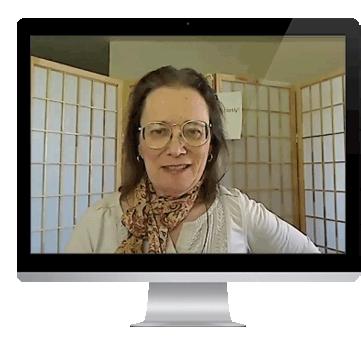A guest post by Ellen Finkelstein, a Presenting, Powerpoint and Speaking Expert
See below for invitation to her free webinar!

You publish your work in order to inform the academic community about your research or field of study. It matters that your audience understand what you write, or you won’t achieve your goal. The process of submitting to an edited journal may help your writing become clearer, but what process do you use to spiff up your speaking?
Speaking is different from writing:
- You write alone but speak to a group.
- You can edit your writing before you submit it, but can’t take back what you say.
- Your writing audience can stop reading when they get bored, but your live audience pretty much has to sit there, even if you bore them to tears.
- When you get a reader’s inquiry about your writing, you can think about how to respond; when an audience member asks you a question, you need a quick response
- Your audience members look at your writing up close but usually have to see your slides from wherever they are in the room.
- Your audience can reread difficult or interesting sections of your writing, but your presentation needs to be structured in a way that helps your audience understand and remember what you say immediately.
You must show and tell
Because speaking is a medium that passes quickly, you need to use the knowledge of brain science to help your audience fully understand, engage with you and remember what you say. If you don’t, not only will your audience be bored, but your goal of reaching your audience will not be fulfilled.One way to get your audience focused and engaged is to tell your point and then show it with a graph, image, or other graphic. This technique is based on research by Michael Alley, a professor of engineering at Penn State’s School of Engineering. He calls his system “assertion-evidence.” Although he worked with scientific presentations, the principles apply to any presentation.
I call it Tell ‘n’ Show℠. Almost every slide should combine a title that tells your point with a graphic that shows it. Learning how to create slides like that will transform your experience as a presenter and your audience’s experience as receiver of your content. It’s just like this boy’s book – one side tells the story and the other side shows it, with a BIG picture.
*********************************************************************************
If you’d like to learn more about academic presenting, both for your academic colleagues and for students, Ellen has agreed to present her free webinar:
on Monday, October 16, 2017 at 2:00 pm Eastern, 1:00 Central, Noon Mountain, 11:00 Pacific, 7:00 London, 8:00 Paris. Try to get there a few minutes early to ensure a place.
We look forward to you joining us and to Ellen helping you create better, more engaging presentations!

Comments
Post a Comment